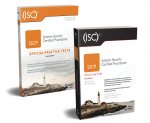
Code: 08138154
Influence of Anonymity in a Group Problem-Solving Environment
by Robert A Sylvester
A group support system (GSS) uses a combination of networked personal computers, software that collects, manipulates, and aggregates member's individual input, and human facilitation to improve the group decision-making process. G ... more
- Language:
 English
English - Binding: Paperback
- Number of pages: 164
Publisher: Biblioscholar, 2012
- More about this

You might also like
-

Cat And The Lizard
33.72 €
Give this book as a present today
- Order book and choose Gift Order.
- We will send you book gift voucher at once. You can give it out to anyone.
- Book will be send to donee, nothing more to care about.
More about Influence of Anonymity in a Group Problem-Solving Environment
You get 150 loyalty points
 Book synopsis
Book synopsis
A group support system (GSS) uses a combination of networked personal computers, software that collects, manipulates, and aggregates member's individual input, and human facilitation to improve the group decision-making process. Group support systems are being used in the Air Force today in a variety of capacities and in particular by the Warner-Robins Air Logistics Center (WR-ALC) to assess acquisition risks. GSS facilitators at WR-ALC are interested in achieving the optimal productivity out of their GSS system. Prior GSS research has found that content and process anonymity influence problem solving groups. However, previous studies report mixed results on which levels of anonymity positively influence group performance. This thesis looked at content and process anonymity using four treatments to explore possible explanations for the mixed results found in previous GSS research. The study examined numerous theories including anonymity, identification, social loafing, and social comparison. An experiment was developed to assess how content and process anonymity influence participation rates, quality of the group decision, consensus levels, user attitudes, and user satisfaction with the group outcome. Groups participated in conditions of total anonymity, process anonymity, and no anonymity. The no anonymity condition included face-to-face discussion and use of a GSS in which comments were labeled and stations were labeled with placards. The results of the study were under whelming. In general, it was found that face-to-face groups participated at higher levels, achieved a higher group decision quality, reached higher consensus and were more satisfied with the group outcome. These findings cannot be attributed to the lack of process and content anonymity however, because the GSS labeled with placard treatment did not achieve the same results.
 Book details
Book details
Book category Books in English Society & social sciences Education
59.79 €
- Full title: Influence of Anonymity in a Group Problem-Solving Environment
- Author: Robert A Sylvester
- Language:
 English
English - Binding: Paperback
- Number of pages: 164
- EAN: 9781249450092
- ISBN: 9781249450092
- ID: 08138154
- Publisher: Biblioscholar
- Weight: 304 g
- Dimensions: 246 × 189 × 9 mm
- Date of publishing: 20. September 2012
Trending among others
-

Cambridge IGCSE (R) & O Level Complete Physics: Student Book Fourth Edition
41.97 € -

Cambridge IGCSE (R) & O Level Complete Biology: Student Book Fourth Edition
41.97 € -

Cambridge IGCSE (R) & O Level Complete Chemistry: Student Book Fourth Edition
50.93 € -

Oxford IB Diploma Programme: IB Economics Course Book
62.31 € -

Oxford IB Diploma Programme: IB Theory of Knowledge Course Book
57.98 € -

Oxford International Primary Science Second Edition: Workbook 4
14.99 € -

Business Partner B1 Workbook
17.71 € -7 % -

AQA French A Level Year 1 and AS
50.33 € -

CompTIA Security+ Review Guide - Exam SY0-601
24.76 € -24 % -

Cambridge IGCSE (R) & O Level Complete Biology: Print and Enhanced Online Student Book Pack Fourth Edition
61.10 € -

geog.2 Workbook
11.47 € -6 % -

Oxford IB Study Guides: Economics for the IB Diploma
47.71 € -

Teach Reading With Orton-gillingham
18.82 € -10 % -

KS3 Maths 10-Minute Weekly Workouts - Year 7
8.04 € -8 % -

Blue Book of Grammar and Punctuation: An Easy- to-Use Guide with Clear Rules, Real-World Examples , and Reproducible Quizzes, Twelfth Edition
15.09 € -28 % -

Business Partner B1+ Workbook
16.80 € -3 % -

Powerful Teaching: Unleash the Science of Learning
26.17 € -26 % -

Business Partner B2 Workbook
16.80 € -3 % -

Embodied Teen
21.64 € -16 % -

(ISC) SSCP SG & SSCP Practice Test Kit, 3e
65.13 € -27 % -

Growth Mindset Classroom-ready Resource Book
16.20 € -28 % -

AQA A Level Biology Revision Guide
25.56 € -5 % -

UKCAT For Dummies
23.15 € -28 % -

Oxford International Primary Maths Second Edition: Practice Book 1
12.17 € -

Oxford International Primary Science Second Edition: Student Book 1
26.77 € -

Donny's Unauthorized Technical Guide to Harley Davidson 1936 to Present
47.91 € -16 % -

OET Speaking for Nurses Book 2
11.57 € -2 % -

Edexcel International GCSE Chemistry Student Book Second Edition
31.60 € -14 % -

Oxford International Primary Maths Second Edition: Practice Book 2
12.17 € -

Cambridge IGCSE (R) & O Level Complete Physics: Print and Enhanced Online Student Book Pack Fourth Edition
62.91 € -

OET Speaking For Nurses Book 1
12.78 € -

Walk Your Talk; Tools and Theories To Share Nonviolent Communication
29.29 € -

Oxford International Primary Maths Second Edition: Practice Book 3
13.58 € -

Social Skills Activities for Secondary Students wi th Special Needs, Third Edition
26.37 € -21 % -

AQA GCSE German Foundation Practice Papers
15.29 € -

geog.1 5th edition Workbook Answer Book
56.37 € -

New KS2 English Year 5 Foundation Grammar, Punctuation & Spelling Targeted Question Book w/Answers
8.95 € -5 % -

Making Escape Rooms for Educational Purposes
18.72 € -

Cambridge IGCSE (R) & O Level Complete Chemistry: Print and Enhanced Online Student Book Pack Fourth Edition
62.91 € -

New KS2 English Year 4 Foundation Grammar, Punctuation & Spelling Targeted Question Book w/Answers
8.95 € -5 % -

Oxford International Primary Maths Second Edition: Practice Book 5
16.10 € -

Education in the New Age
12.88 € -

240 Vocabulary Words Kids Need to Know: Grade 3
11.77 € -17 % -

Oxford IB Diploma Programme: Oxford IB Diploma Programme: IB Mathematics: applications and interpretation Standard Level Enhanced Online Course Book
95.13 € -

OET Preparation
9.65 € -

Speed and Accuracy: Multiplication
8.65 € -

ESL/ELL Teacher's Survival Guide: Ready-to-Use Strategies, Tools, and Activities for Teaching En glish Language Learners of All Levels, 2nd Edition
29.69 € -21 % -

KS3 Maths 10-Minute Weekly Workouts - Year 8
8.04 € -8 % -

Speed and Accuracy: Division
8.65 €
Collection points Bratislava a 2642 dalších
Copyright ©2008-24 najlacnejsie-knihy.sk All rights reservedPrivacyCookies



 15549 collection points
15549 collection points Delivery 2.99 €
Delivery 2.99 € 02/210 210 99 (8-15.30h)
02/210 210 99 (8-15.30h)